In contrast to many immigrants from Europe, who sought salvation in America for economic reasons, the "48ers" were political refugees. They were actively involved in the failed revolution of 1848 and had to flee Germany. As a result, they are referred to as “forty-eighters”. They are estimated at a few thousand strong.
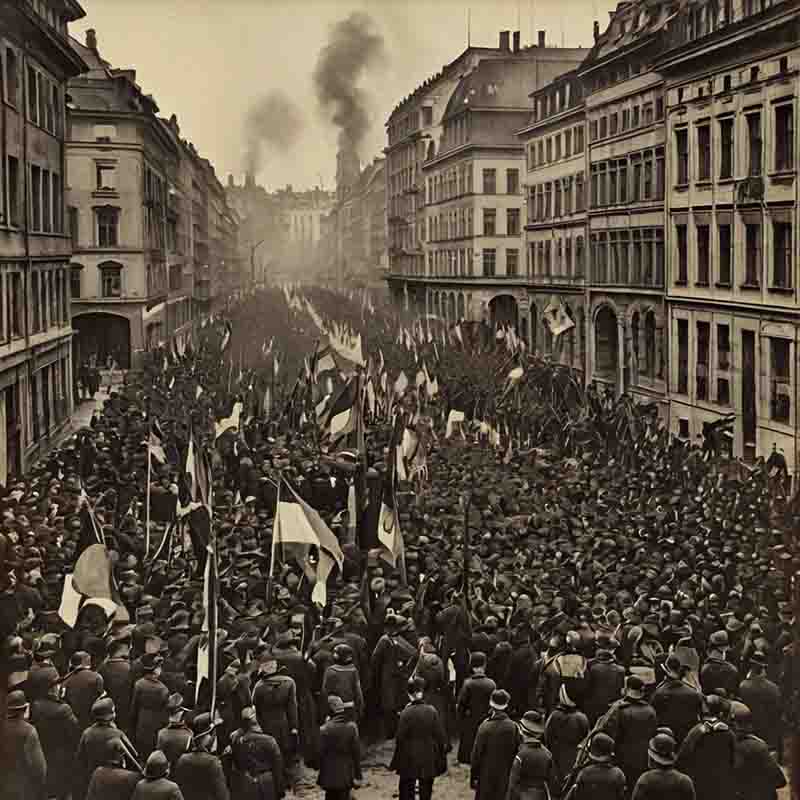
A new wave of democratic German immigration to the United States was due to the failed Revolution in Germany. The newly minted German-Americans filled the ranks two decades later when the Civil War broke out in their new homeland.
What happened in Germany in 1848?
As a result of the violent suppression of the German March Revolution of 1848, by the troops of the German monarchy and the nobility, which ended in the late summer of 1849, the forty-eighters had become victims of persecution by the authorities of the German Confederation and in the most serious cases were punished by the ruling authorities with imprisonment and execution.
The German territory was no longer a suitable home for numerous bourgeois-democratic-minded people and revolutionary thinkers from the broadest range of social backgrounds.
The aim of the revolutionaries against the monarchically governed German Confederation was to achieve freedom through democratic reforms, the equality of all classes of citizens and the unification of the German nation.
Why did Germans come to the United States following 1848?
With the Declaration of Independence of 1776 and its respect for human rights that promised personal freedom and political liberty, the United States offered compelling arguments for politically motivated German exiles to live in the U.S. as they made that very claim to their homeland.
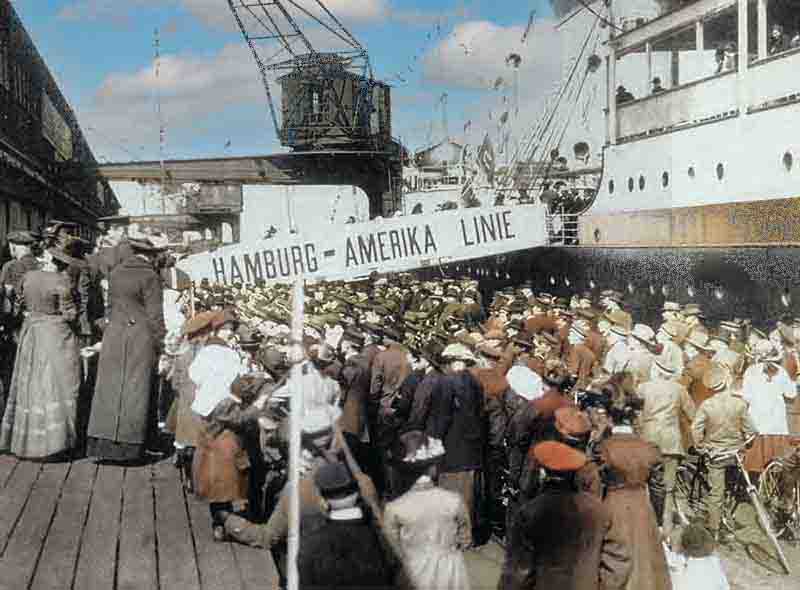
People who had the necessary means travelled to the USA by ship. The lack of immigration laws and the granting of American citizenship guaranteed them the asylum they longed for. The 48er demographic was relatively low in relation to the rest of the German emigrants.
What was next for the Forty-Eighters after they reached America?
They migrated to the developing cities of the Midwest and in the south. Many established themselves in the Texas Hill Country near Fredericksburg. Given their liberal ideals, they strongly opposed the act of secession from Texas in 1861.
Some developed thriving agricultural communities and were derided as "Latin Farmers" because of their educated background. They worked as journalists, founded German-language newspapers and appeared as speakers.
Emigrants from modern Germany became politically active in their new environment. They founded companies and developed the beer and wine industry on a significant scale.
Cultural and social organizations
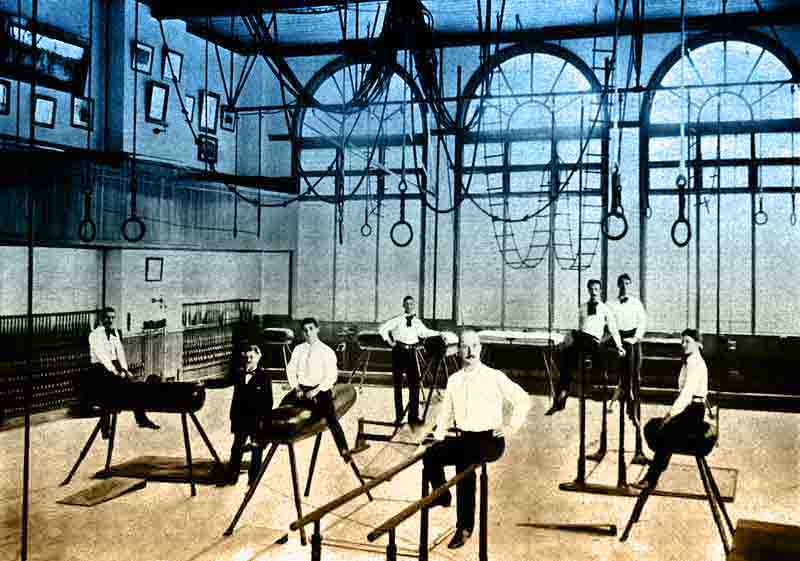
The Forty-Eighters formed cultural and social organizations, Philharmonic orchestras, German-speaking theatres, choirs and supported assimilation by teaching English.
The best known of these associations were the so-called "gymnastics clubs," a sporting movement with a traditional German character.
The latter were centres of political activity. After sports people stayed together for lively discussions, about the old homeland and the past revolution.
The 48ers can be classified as Democratic Republicans
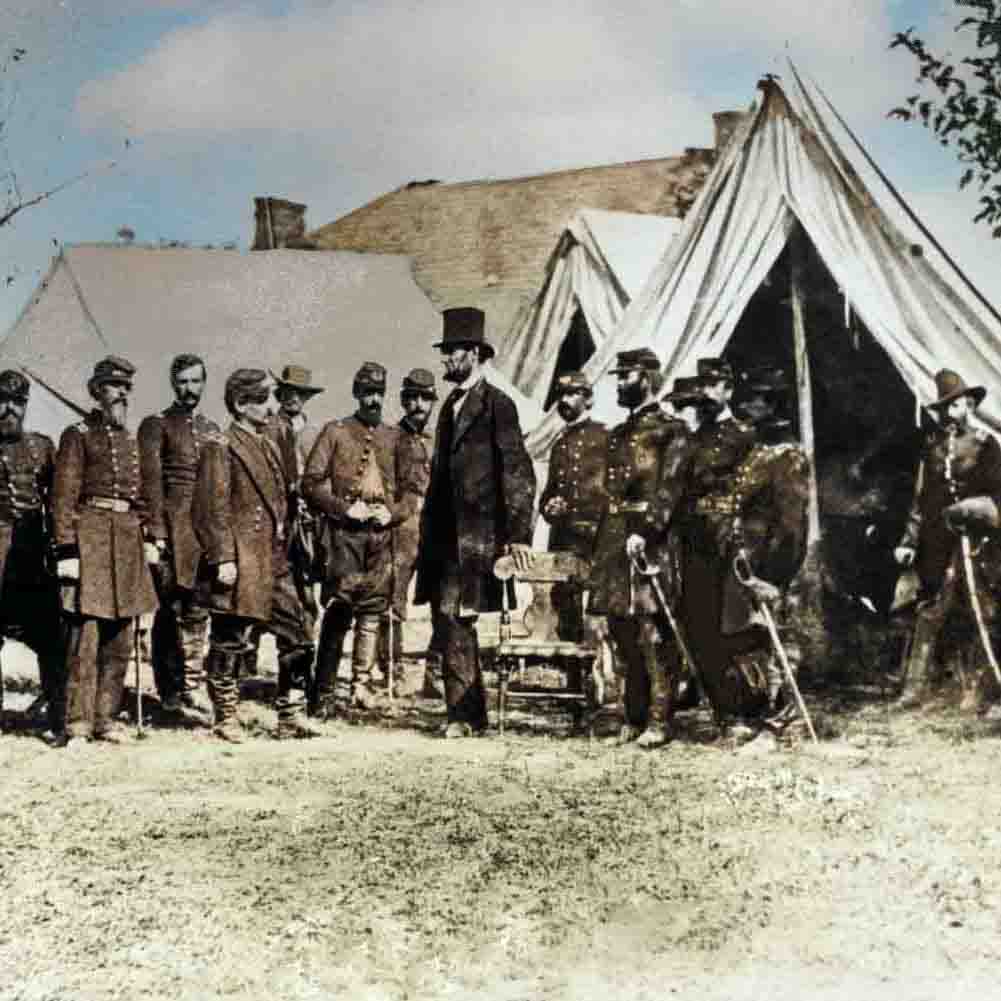
In the United States, the 1850s were a time marked by political, economic, and social unrest, culminating in the American Civil War (1861 to 1865), commonly called the War of Secession.
Through their newfound freedom, political and democratic engagement, and recognition as "Americans," the 48ers became deeply involved in United States institutions of government.
Especially intellectuals and academics from the circle of German immigrants took an active part in public life after their arrival in the United States.
The 48ers were politically and morally staunch opponents of slavery and became involved as volunteers in the Union forces during the Civil War. Many of them were Lincoln supporters and were members of the Republican Party.
Political Action and Moral Sentiments of German Exiles in America
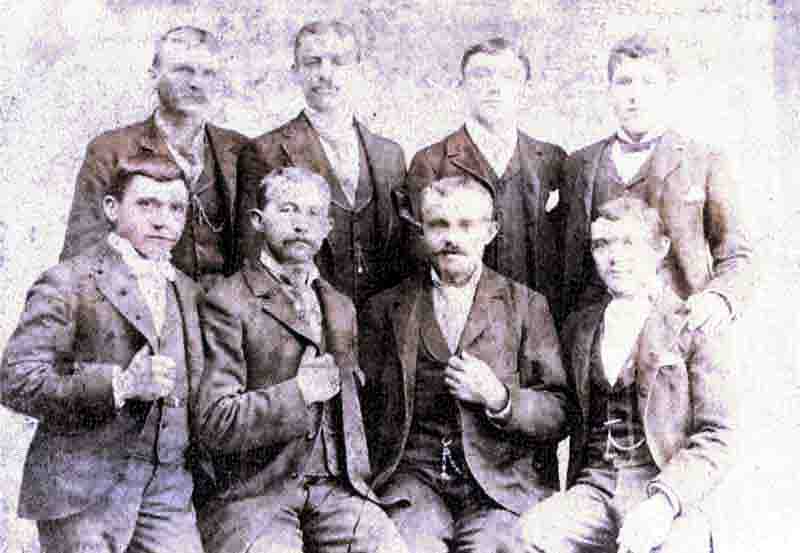
The Forty-Eighters became known among German-Americans and fellow countrymen for their role in politics through German-language publications and by participating in the 1856 and 1860 election campaigns on the Republican side.
The goal of the '48 press was to educate the German emigrants, who understood English only to a limited extent, about the culture and way of life of the Americans as well as about the political conditions in the United States.
It endeavoured to educate the politically inexperienced Germans to become freedom-loving democrats. Many German American newspapers tried to contribute to the instrumentalization of the German population, which, however, was reluctant to be manipulated for political purposes.
Mathilde Franziska Giesler Anneke Editor of the campaign newspaper "Deutsche Frauen-Zeitung" (German Women's Newspaper) was the first to employ women as typesetters.
From Republican Germans to German-American Republicans
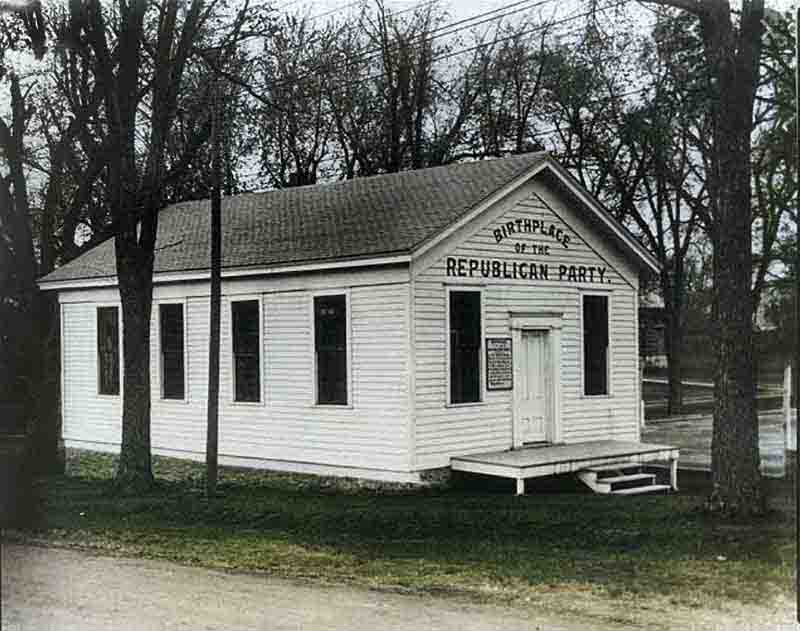
Birthplace of the Republican Party, Ripon, Wisconsin. The Republican Party was founded on northern Protestants, businessmen, professionals, factory workers, and wealthier farmers. It was pro-business, promoting banks, the gold standard, railroads, and high tariffs to protect heavy industry and industrial workers.
When the Republican Party was founded in Ripon, Wisconsin, on February 28, 1854, many of the 48ers, notably Friedrich Hecker, Carl Schurz, and Gustav Struve, signed up to join it.
In the 1856 presidential campaign, they campaigned for Republican John Charles Frémont, who failed to win the election. Abraham Lincoln, who was supported by the forty eighters, was the first Republican Party candidate to hold the office of President of the United States of America in November 1860.
A committed campaign speaker, Carl Schurz found his way onto the staff of advisors. Lincoln's appointment was ultimately the decisive cause that led to the secession of the Southern states.
“I had this same confidence in Carl Schurz as a political channel-finder. I had the highest opinion of his inborn qualifications for the office: his blemishless honor, his unassailable patriotism, his high intelligence, his penetration; I also had the highest opinion of his acquired qualifications as a channel-finder. I believed he could read the political surfaces as accurately as Bixby could read the faint and fleeting signs upon the Mississippi’s face — the pretty dimple that hid a deadly rock, the ostentatious wind-reef that had nothing under it; the sleek and inviting dead stretch that promised quarter-less-twain and couldn’t furnish six feet.”.
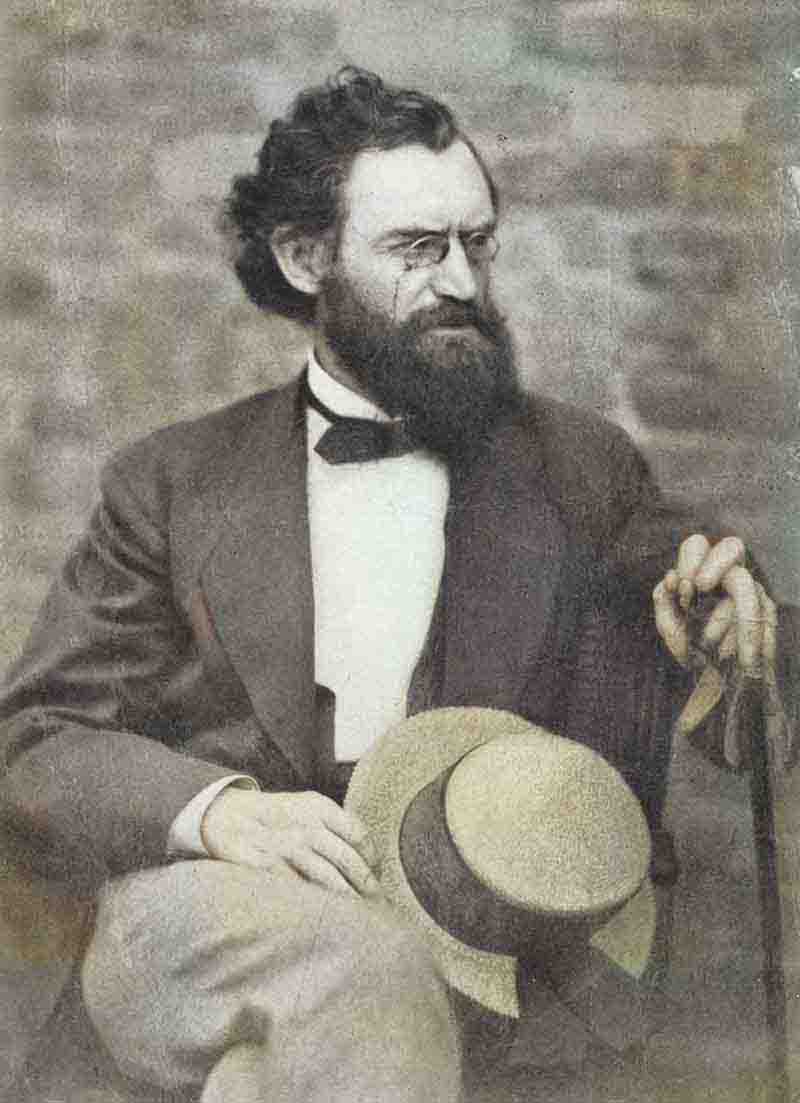
Carl Schurz became a senator from Missouri in 1869, he became U.S. Secretary of the Interior under President Rutherford B. Hayes, he was a valued advisor to President Abraham Lincoln. At Schurz's death, his personal friend Mark Twain praised him for his "unblemished honorableness, his unassailable patriotism, his high intelligence, his sagacity." In this way, the former German "revolutionary" contributed much to the democratic development of the USA.
Carl Schurz: The True Americanism
“What is the rule of honor to be observed by a power so strongly and so advantageously situated as this Republic is? Of course I do not expect it meekly to pocket real insults if they should be offered to it.
But, surely, it should not, as our boyish jingoes wish it to do, swagger about among the nations of the world, with a chip on its shoulder, shaking its fist in everybody’s face. Of course, it should not tamely submit to real encroachments upon its rights.
But, surely, it should not, whenever its own notions of right or interest collide with the notions of others, fall into hysterics and act as if it really feared for its own security and its very independence.
As a true gentleman, conscious of his strength and his dignity, it should be slow to take offense. In its dealings with other nations it should have scrupulous regard, not only for their rights, but also for their self-respect.
With all its latent resources for war, it should be the great peace power of the world. It should never forget what a proud privilege and what an inestimable blessing it is not to need and not to have big armies or navies to support.
It should seek to influence mankind, not by heavy artillery, but by good example and wise counsel. It should see its highest glory, not in battles won, but in wars prevented.
It should be so invariably just and fair, so trustworthy, so good tempered, so conciliatory, that other nations would instinctively turn to it as their mutual friend and the natural adjuster of their differences, thus making it the greatest preserver of the world’s peace.
This is not a mere idealistic fancy. It is the natural position of this great republic among the nations of the earth. It is its noblest vocation, and it will be a glorious day for the United States when the good sense and the self-respect of the American people see in this their “manifest destiny.”
It all rests upon peace. Is not this peace with honor? There has, of late, been much loose speech about “Americanism.” Is not this good Americanism? It is surely today the Americanism of those who love their country most.
And I fervently hope that it will be and ever remain the Americanism of our children and our children’s children”.
The 48ers are thus seen as members of the upper educated class of German-speaking Europe and at the same time as refugees. Their revolutionary struggle, which they had lost in Europe, continued in the United States.
Following the Civil War, the Forty-Eighters worked for improved labour laws and working conditions. They promoted the country's cultural and intellectual growth in areas such as education, art, medicine, journalism, business, science and architecture.
Are you curious about music, art, technology, fashion, lifestyle, and beer?
If so, then you need to subscribe to the free Likewolf newsletter.
100% privacy. When you sign up, we'll keep you posted.
Carry On the Legacy
German Americans in the United States
